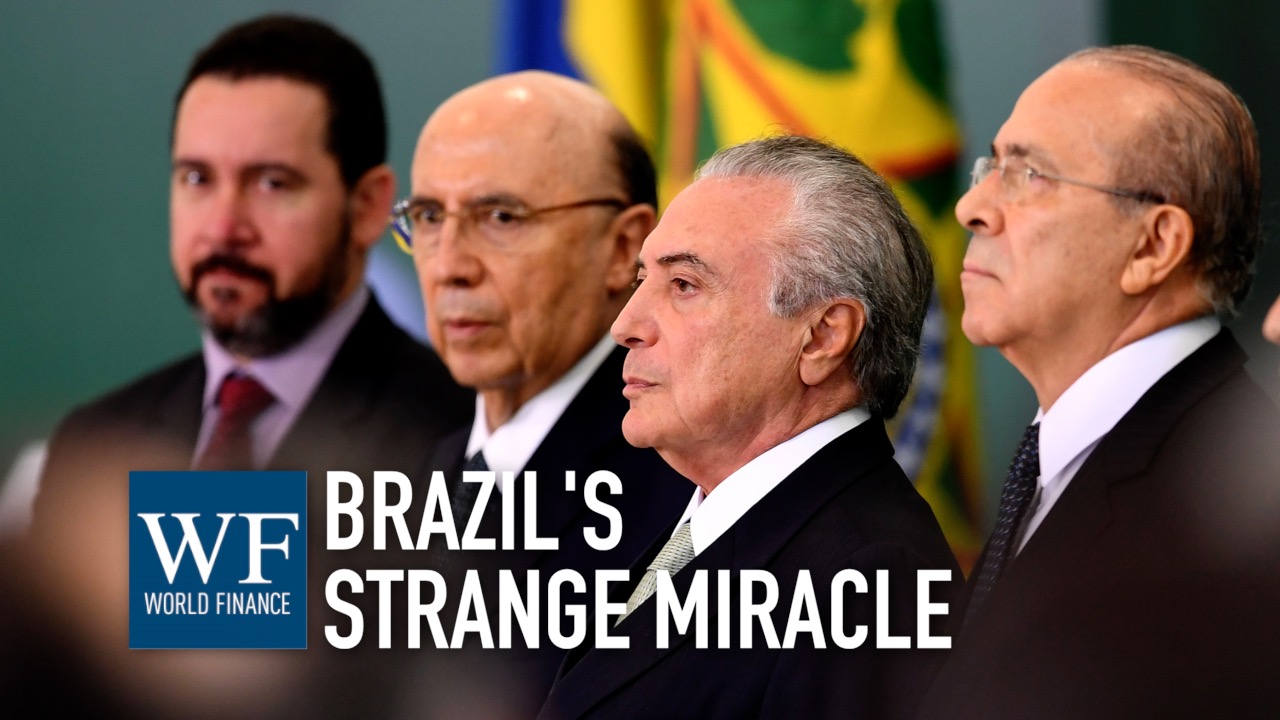Alfredo Lalia on the Brazilian private pension industry | HSBC Insurance Brasil | Video
World Finance interviews Alfredo Lalia, CEO of HSBC Insurance Brasil, on the growth of the Brazilian private pension industry
Related:
Transcript
Brazil’s private pension industry grew 10 percent last year, with premiums now worth BRL 21bn. With the public pension deficit at BRL 50bn, there’s a big gap in pension provision that the private sector can capitalise on. Alfredo Lalia, CEO of HSBC Insurance Brasil, talks about the opportunities and challenges facing the sector, and touches on the importance of financial education.
World Finance: Alfredo, what has been the driving force behind Brazil’s private pension industry?
Alfredo Lalia: The main reason for growth was that when [hyper]inflation stopped in Brazil in the 90s, people started to think in much more long-term. And this helped the industry to convince people to prepare for their retirement. So it’s much more common now to think in the long-term than it was in the 80s, when you had a hyperinflation period in Brazil.
World Finance: Is the public concerned about the large gap in public finances I mentioned?
Alfredo Lalia: Yes, in fact in Brazil and in any country of the world, people know that the government can’t provide the same level of benefit that you are used to having. So, people are much more concerned that they should start to develop their own plans for retirement.
World Finance: Now you commissioned a study recently in which two thirds of your Brazilian respondents said that they had never saved for their retirement; why do you think this is the case?
We discovered that people are concerned about their retirement, but there are other short-term projects that are not allowing people to comply with all their plans
Alfredo Lalia: Basically we discovered that people are concerned about their retirement, but there are other short-term projects that are not allowing people to comply with all their plans. So basically you have a huge space to work in financial education, and show to the people that they have short, medium, and long -term projects, and the long-term should be started in the beginning of their professional life.
World Finance: But your study also found that Brazilians do understand the need to save for their retirement, so is it a question of financial education, or is it a more serious wage issue?
Alfredo Lalia: It’s a combination of both. In fact, as you have this long-term inflation period, people don’t have this culture of long-term planning. People say, “Oh, should I buy a new iPhone? Should I change my car? Or should I keep my pension plan?” So consumption is a challenge, and how you convince or how you explain to people that you can have both: you can have the short-term pleasure, and you need to guarantee the long-term pleasure that is their retirement plans.
World Finance: And so what is your message to the people of Brazil?
Alfredo Lalia: You should be realistic in your retirement needs, in your retirement ambitions. You know? There isn’t any formulaic approach: each person has a different view about the future, and will be at a different level of expense at the future. So you need to build your own future needs.
You need to understand your incomes, your expenses, and create a strong plan
The second one is to start as early as possible. So if you start early, even if it’s one, two, three percent of your income, but it’s constant – that’s important.
The third one is, you need to understand your incomes, your expenses, and create a strong plan. And this includes not only you, but you, your family, your children; you need to create this budget that says “No, this is what you can save for the future,” and you need to make choices about the expenses that you need to cut or keep.
The fourth step is, you always need to remind yourself that each plan is a long-term plan. It’s a type of marathon. And some different things can happen that you’re not planning. So the plan is not perfect, but you can rebuild your future plans.
And finally, know that you can have some specialists to help. So, as you go to a doctor when you have a health problem; probably the best option is go to a financial planner when you are building this budget for the future. So let’s go to the specialist as you go to a doctor. This is an important message.

 Empresta Capital adopts SPM standards to gauge social investment impact
Empresta Capital adopts SPM standards to gauge social investment impact Brazilian capital markets recover after government’s economic U-turn
Brazilian capital markets recover after government’s economic U-turn
